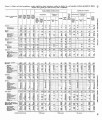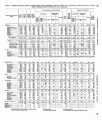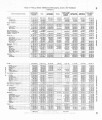| OCR Text |
Show 24 COMMISSIONER OF INDIAN AFFAIRS. sion in business conditions and the financial stringency. For these reasons also the prices obtained have in most cases been lower than those received in 1920; and in many instances it has been found necessary, with the consent of the Indians interested, to extend the time of payment on the notes of the purchasers. A number of tracts of land have been purchased for Indians with their trust funds, and in these cases the abstracts of title have been examined in this office, and in case the Indian interested was re- ( garded as not competent to handle his affairs, a restriction as to future alienation except with the consent of the-Secretary of the Interior has been included in the deed. FARMING AND GRAZING LEASES. Under the act of Congress dated' June 25, 1910 (36 Stab. L., 855), allotted Indians who are holding their lands under trust patents are authorized to lease the same for a peiiod not to excetd five ears under regulations prescribed by the Secretary of the Intenor. Jnder these regulations allottees at various agencies have been classified as competent and noncompetent, the competent being permitted to transact the business incident to makin their own leases and col-b lecting their own rentals., In the case o !! incompetent Indians leases of lands are negotiated m the agency office and the rentals paid through the superintendent. In order to eliminate as far as possible the extra handling of leas-ing work and the routine tranmnission of papers to the oEce, super-intendents and others in charge of allotted Indian lands were early in the year authorized to grant certificates of com etency to Indians who were properly qualified to negotiate leases. 3h is has resulted in a.considerable saving in clerical work and such applications for this privilege are not now sent'to the bureau for action. Under the act of February 14, 1920 (41 Stat. L., 408-415), the department was authorized and. directed to charge a reasonable fee for the work incident to the sale, leasing or assigning of tribal or allotted Indian lands, the same to be collected from vendees, lessees, . . or grantees and covered into the United States Treasury as miscel-laneous receipts. Regulations were according1 promulgated which fixed a fee of $5 for each lease or sublease. 72' his fee in some cases was found to work a hardship, and by order of May 27, 1921, the department directed that in all farming and grazing leases a fee of but $1 be charged where the total rental is not more than $100; a fee of $2.50 where such rental is not over $250; and $5 where the total rental is more than $250. A further saving and reduction in the amount of official work was effected by an item in the Indian appropriation act of March 3, 1921 (41 stat. L., 1225-1232), which requires that all farming and grazing leases thereafter entered into shall be subject only to the apprqval of the superintendent or other officer in charge of the res-ervation where the land is located-this provision not to apply to the Five Civilized Tribes. Regulations were promulgated March 3, 1921, under the foregoing act, which required superintendents to approve and retain at the agency all leases of the character indicated! except that in cases where disputes or contests arise that he is unable to ad-just satisfactorily, he shall submit all the fyts and evidence with a copy of the lease to the office for settlement. |









































































